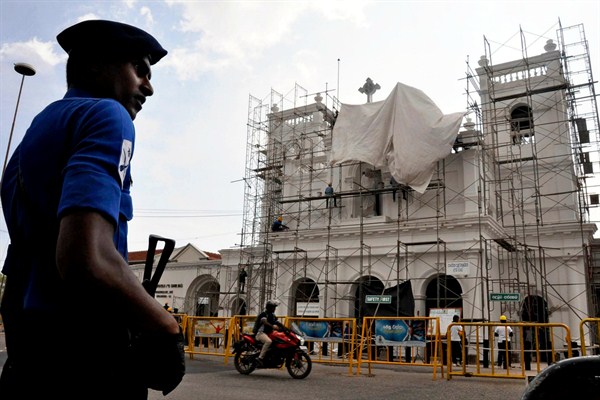In the four months since coordinated suicide bombers killed more than 250 people across Sri Lanka on Easter Sunday, the country’s embattled government has been forced to grapple with a common question in the post-9/11 era. How do you stop enemies willing to kill themselves for a political or religious cause?
For Prime Minister Ranil Wickremesinghe, one answer has been to accept blame for errors in policing and intelligence gathering while calling on other countries to help curb the scourge of violent extremism. But even as Sri Lanka’s leaders look abroad for support, they must not forget that one of the world’s best blueprints for deradicalization was actually written at home.
Among the more significant aspects of the Easter bombings in Sri Lanka is how the violence was organized. According to authorities, Muslim men inspired by the self-proclaimed Islamic State used family ties to recruit members and keep their plans secret. It is a classic formula for radicalization, with a network of individuals bonded by shared values developing a willingness to defend each other or their beliefs, regardless of the cost.

